Kitchen Clean

How can I keep my kitchen clean and hygienic ?
Keeping a kitchen clean and hygienic is essential for maintaining good health and preventing the spread of bacteria and other harmful substances. Here are some tips on how to keep your kitchen clean and hygienic: Start with a clean slate, wash hands frequently, use separate cutting boards, clean as you go, store food properly, clean appliances regularly, disinfect regularly, and take out the trash. By following these simple tips, you can keep your kitchen clean and hygienic, which will help keep you and your family healthy.

What are some time-saving tips for meal prep in the kitchen ?
Meal prep is an essential part of a healthy and organized lifestyle. Here are some time-saving tips for meal prep in the kitchen: 1. Plan ahead to avoid last-minute trips to the grocery store and ensure that you have everything you need for your meals. 2. Make a grocery list of all the ingredients you will need to save time by avoiding unnecessary trips to the store. 3. Choose simple recipes that require minimal preparation and cooking time, such as one-pot or pan recipes. 4. Cook in bulk to save time during meal prep by cooking large portions of food and then dividing them into individual servings for easy storage and reheating later in the week. 5. Use a slow cooker or pressure cooker to cook food while you are away from home, so you can come back to a delicious and ready-to-eat meal. 6. Prep vegetables ahead of time by washing, chopping, and storing them in airtight containers in the fridge for easy access when you need them. 7. Use frozen vegetables and fruits, which are just as nutritious as fresh ones and can save you a lot of time during meal prep. 8. Keep your kitchen clean and organized to save time during meal prep by ensuring that everything is easily accessible when you need it.
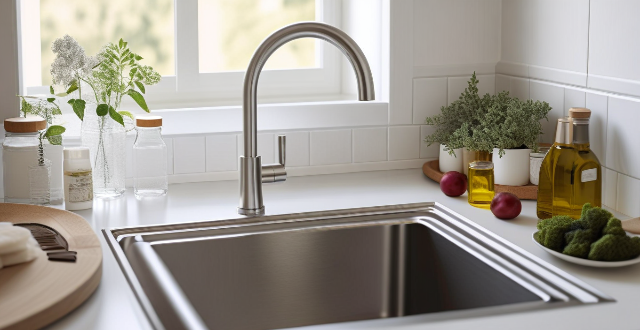
What is the best way to clean and maintain stainless steel kitchen appliances ?
Stainless steel kitchen appliances require proper cleaning and maintenance to keep them looking their best. To clean them, gather materials such as a microfiber cloth, mild dish soap, water, white vinegar, baking soda, and olive or mineral oil for polishing. The cleaning process involves removing grease and stains with a damp cloth, rinsing and drying the surface, removing stubborn stains with a baking soda paste, and polishing the surface with oil. In addition to regular cleaning, maintenance tips include avoiding harsh chemicals and abrasive cleaners, using a gentle touch when cleaning, keeping appliances away from direct sunlight and heat sources, and using protective covers when not in use.
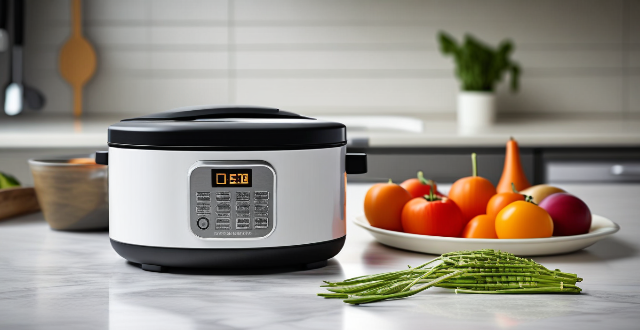
What are some must-have kitchen gadgets for healthy eating ?
In pursuit of healthy eating, having the right kitchen gadgets can significantly improve the preparation and enjoyment of nutritious meals. This article lists essential tools such as a high-quality chef's knife for efficient chopping, a food processor for versatile cooking tasks, a steamer basket for nutrient-rich cooking, and other devices like slow cookers, spiralizers, and immersion blenders that facilitate healthy meal preparation. Each device is discussed in terms of its benefits, uses, and why it is considered essential for healthy cooking. By incorporating these tools into your kitchen setup, you can make preparing healthy meals easier and more enjoyable, setting the foundation for a lifetime of healthy eating habits.
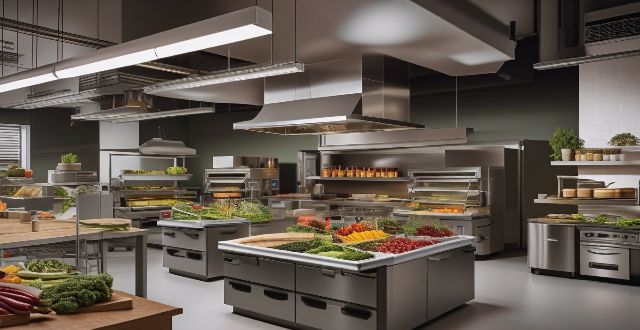
How can cross-contamination be prevented in a commercial kitchen ?
Cross-contamination is a significant concern in commercial kitchens, where food safety and quality are paramount. To prevent it, strict procedures and practices must be implemented to minimize the risk of harmful bacteria or allergens spreading from one food item to another. Key strategies include using separate cutting boards and utensils for different types of food, proper handling of raw foods, sanitizing work surfaces and equipment, avoiding cross-contact during cooking, safe storage practices, allergen management, and maintaining personal hygiene and staff training. By implementing these practices, you can significantly reduce the risk of cross-contamination in your commercial kitchen, ensuring that your customers receive safe and high-quality meals every time.
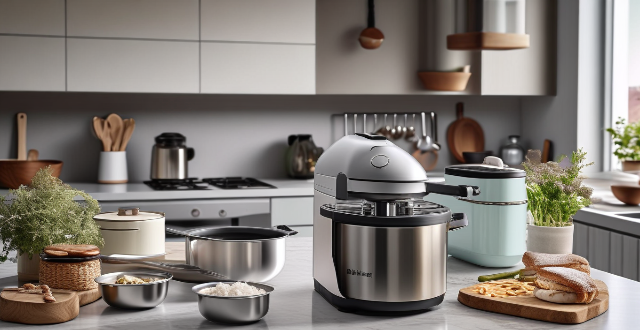
How can I use kitchen appliances to save time while cooking ?
Using kitchen appliances like food processors, slow cookUsing kitchen appliances like food processors, slow cookers, rice cookers, slow cookers, electric pressure cookers, rice cookers, and stand mixers can significantly save time in meal preparation. These appliances offer features such as chopping, grinding, making dough, cooking at different heat settings, and precise mixing, allowing for efficient and convenient cooking experiences.
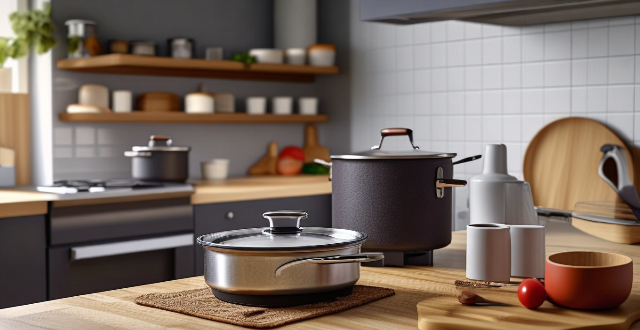
What are the key features to look for when purchasing a new kitchen stove ?
When purchasing a new kitchen stove, key features toWhen purchasing a new kitchen stove, key features to, energy efficiency, cooking power Choosing a stove with these essential features will enhance your cooking experience and ensure you get the most out of your investment.

How can I make the most of leftover ingredients to save time and money in the kitchen ?
How Can I Make the Most of Leftover Ingredients to Save Time and Money in the Kitchen? Saving time and money in the kitchen is a common goal for many home cooks. One effective way to achieve this is by making the most of leftover ingredients. Here are some tips on how to do so: - Plan ahead by making a meal plan and shopping smart to avoid wastage. - Store leftovers properly in the refrigerator or freezer using airtight containers. - Get creative with leftovers by transforming them into new dishes, combining them, adding them to soups and stews, or trying new recipes. - Don't be afraid to experiment with different flavors and combinations. - Share leftovers with family and friends or donate them to food banks or other charitable organizations.

What are some time-saving tips for organizing my kitchen pantry ?
Organizing your kitchen pantry can save time and make meal preparation more efficient. Here are some tips: declutter, use clear containers, label everything, group like items together, use shelves and racks, rotate stock, keep a pantry inventory list, and regularly clean your pantry. These strategies will help you create a functional and organized space that meets your needs.
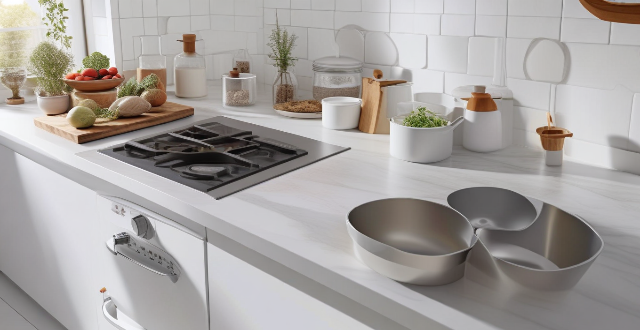
How can cross-contamination be prevented in a kitchen ?
Cross-contamination in kitchens can be prevented through various methods, including maintaining personal hygiene, proper food preparation, using correct cooking techniques, implementing appropriate storage practices, following cleaning routines, and managing waste effectively. These practices are crucial for ensuring food safety and avoiding foodborne illnesses.

What are some ways to organize my kitchen to make cooking more efficient ?
Organizing your kitchen can greatly enhance the cooking experience by making it more efficient and enjoyable. Here are some strategies to consider: 1. Zone Cooking Areas 2. Declutter Regularly 3. Smart Storage Solutions 4. Group Like Items Together 5. Maximize Fridge and Freezer Space 6. Keep a Clean Sink 7. Lighting and Safety
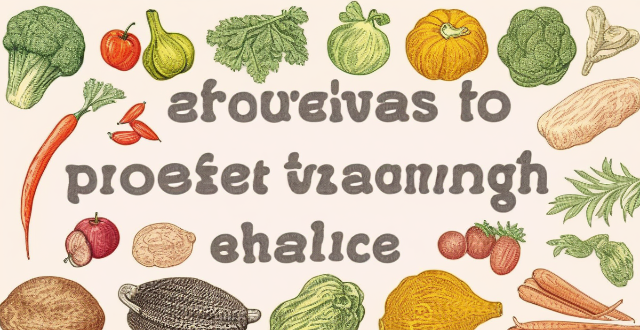
How can I streamline my cooking process to save time in the kitchen ?
The text provides tips and tricks for streamlining the cooking process, including planning ahead, using slow cookers or pressure cookers, prepping ingredients in advance, cooking once and eating multiple times, and cleaning as you go. These strategies aim to save time, reduce stress, promote healthy eating, and create a more enjoyable cooking experience by emphasizing preparation and organization.

How can I make a fast and easy dinner ?
Here are some tips on how to make a fast and easy dinner: 1. Plan ahead by taking time during the weekend to plan your meals for the week. This will help you avoid last-minute trips to the grocery store and ensure that you have all the ingredients you need on hand. 2. Choose simple recipes that require minimal preparation and cooking time. Look for recipes that use fewer than five ingredients and can be cooked in one pot or pan. 3. Use convenience foods such as pre-chopped vegetables, pre-cooked proteins, and ready-to-heat side dishes to save time and effort in the kitchen. 4. Cook enough food for two meals at once and refrigerate or freeze the leftovers for another day. This will save you time and ensure that you always have a healthy meal ready to go. 5. Clean up as you cook by wiping down counters, washing dishes, and putting away ingredients as soon as you're done using them. This will keep your kitchen tidy and prevent clutter from building up while you cook.

How does clean energy investment impact the environment ?
Clean energy investment positively affects the environment in various ways, including reducing greenhouse gas emissions, conserving natural resources, improving air quality, promoting sustainable practices, and enhancing long-term energy security. These efforts help mitigate climate change, protect ecosystems, reduce pollutants, encourage innovation and job creation, and stabilize energy prices. As environmental challenges persist, prioritizing clean energy investment is crucial for the planet's health and future generations.
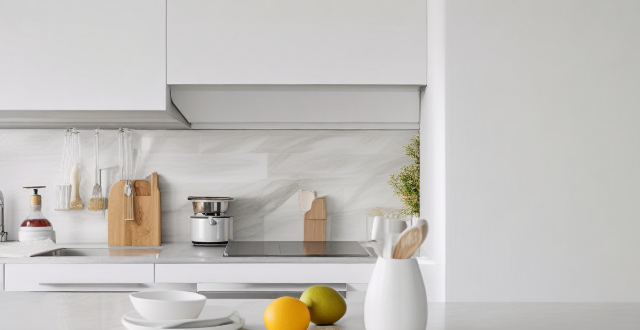
What are the best natural cleaning solutions for my home ?
Natural cleaning solutions are a great way to keep your home clean and fresh without exposing yourself or your family to harsh chemicals. Some of the best natural cleaning solutions for your home include white vinegar, baking soda, lemon juice, and castile soap. White vinegar removes stains, deodorizes surfaces, cuts through grease, and cleans windows without leaving streaks. Baking soda deodorizes fabrics, removes stains, cleans and polishes silverware and jewelry, and freshens drains and garbage disposals. Lemon juice dissolves soap scum and hard water deposits, brightens laundry, deodorizes kitchen surfaces, and removes rust stains. Castile soap cleans floors, walls, dishes, pots and pans, skin, and hair. By using these natural cleaning solutions, you can keep your home clean and fresh while reducing your exposure to harmful chemicals.

How do I clean my AirPods ?
Apple's AirPods require regular cleaning to maintain performance and hygiene. Here's a guide on how to clean your AirPods, including steps to turn them off, remove ear tips, clean the ear tips and exterior, dry, reattach ear tips, test, and additional tips.

What are some effective home cleaning hacks ?
The article provides a comprehensive list of cleaning hacks for different areas of the home, such as the kitchen, bathroom, living area, and laundry room. Each section includes various tips and tricks to make cleaning easier and more efficient. For example, in the kitchen, using baking soda and vinegar can help degrease the oven, while steam cleaning with vinegar can easily clean the microwave. In the bathroom, soaking the showerhead in vinegar can remove deposits, and hydrogen peroxide can be used to clean tile and grout. The article also suggests using natural ingredients like olive oil and lemon juice for furniture polish and saltwater spray for ironing clothes. By following these simple yet effective cleaning hacks, readers can maintain a clean and organized home without spending too much time on cleaning tasks.
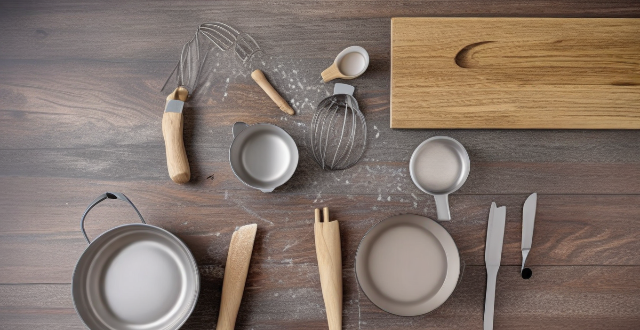
What are the best tools for baking that every kitchen should have ?
The essential baking tools for a kitchen include measuring cups and spoons, digital scales, mixing bowls of various materials, whisks, mixers, baking pans, oven mitts, thermometers, cooling racks, rolling pins, pastry cutters, cookie scoops, parchment paper, piping bags, offset spatulas, zesters, and dough punches. These tools ensure precise measurements, effective mixing, even baking, and easy handling of baked goods, contributing to successful and consistent baking outcomes.

How can I repair a cracked tile in my bathroom or kitchen ?
Cracked tiles in bathrooms and kitchens can be repaired by following a step-by-step process. The process involves gathering necessary tools and materials, preparing the area, removing the damaged tile, cleaning the area, preparing the new tile, applying adhesive, grouting, cleaning and curing, and final touches. Wearing safety gear and using appropriate tools and materials are essential for a successful repair. Extensive damage may require professional assistance.

How do I choose the right blender for my kitchen needs ?
When selecting a blender, consider your primary usesWhen selecting a blender, consider your primary uses size and material, ease of High-end models offer advanced features but mid-range blenders can provide good value for money. Choose a blender that fits your needs, features, and budget.

What are the risks associated with investing in clean energy ?
Investing in clean energy is beneficial for the environment and potentially profitable in the long term, but it comes with its own set of risks. Some of the key risks associated with investing in clean energy include technology risk, market risk, operational risk, regulatory risk, financial risk, environmental risk, and social and political risk. It's essential to be aware of these risks and manage them effectively to ensure successful investments in this sector.

How often should I disinfect my home to prevent the spread of germs ?
To prevent the spread of germs in your home, it's important to disinfect high-touch surfaces daily, including doorknobs, light switches, countertops, bathroom fixtures, and electronic devices. Floors and carpets should be cleaned regularly as well, with hardwood floors mopped weekly and carpets vacuumed twice a week and steam cleaned monthly. Soft furnishings like couches and chairs should be vacuumed weekly, and bedding should be washed in hot water every week. In the kitchen and eating areas, cutting boards and utensils should be washed after each use, and dishes and cups should be cleaned after each meal. Laundry, including clothes and towels, should be washed immediately after wearing or use. Children's toys should also be disinfected regularly, with plastic toys wiped down weekly and plush toys washed monthly. When disinfecting, it's important to follow the instructions on the product label, avoid mixing cleaning products, wear gloves to protect your hands, ensure proper ventilation by opening windows or turning on fans, clean before disinfecting, use paper towels to avoid cross-contamination, don't forget to clean and disinfect trash cans, and sanitize sponges and brushes regularly. By following these guidelines, you can help prevent the spread of germs within your home and maintain a healthy environment for you and your family.

How has the Clean Energy Revolution affected the job market ?
The clean energy revolution has created new job opportunities across various sectors, including solar, wind, geothermal, hydropower, and bioenergy. The industry requires specialized skills in engineering, manufacturing, maintenance, sales, marketing, policy analysis, and advocacy. The clean energy revolution has also transformed existing industries by integrating renewable energy sources into their operations. The shift towards renewable energy sources is expected to continue, requiring individuals to acquire the necessary skills and knowledge to thrive in this rapidly evolving landscape.

What are the potential returns on investment for clean energy projects ?
Investing in clean energy projects offers potential financial, environmental, and social returns. Factors such as capital appreciation, dividends, tax credits, carbon emission reductions, air quality improvements, job creation, and energy security contribute to the overall benefits of these investments. As the global transition towards a low-carbon economy progresses, investing in clean energy projects presents a wise and sustainable option for investors seeking both positive impact and financial gains.

How can I clean my home quickly and efficiently ?
Cleaning your home can be quick and efficient with planning and organization. Create a cleaning plan, declutter your space, gather supplies, work in one direction, tackle one task at a time, multitask where possible, and enlist help when needed to streamline the process and enjoy a clean, tidy living space.
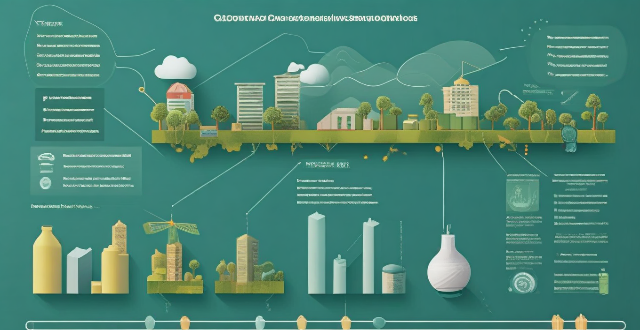
How can individuals invest in clean energy projects ?
Investing in clean energy projects is a way to support sustainable development and fight climate change. Individuals can invest through renewable energy mutual funds, green bonds, direct investment in clean energy companies, community solar projects, and sustainable real estate investments. Examples include iShares Global Clean Energy ETF (ICLN), Toyota Green Bond, and Eco-friendly apartment complexes.

How can individuals contribute to the Clean Energy Revolution ?
The Clean Energy Revolution is a global effort to transition from traditional fossil fuels to renewable energy sources. Individuals can contribute to this cause by adopting renewable energy sources, implementing energy-efficient practices, supporting clean energy policies and initiatives, and raising awareness and educating others. By taking these actions, individuals can play an active role in the Clean Energy Revolution, contributing to a sustainable future for all.

What are the benefits of implementing clean production technologies ?
The implementation of clean production technologies offers a multitude of benefits, including environmental improvements such as pollution reduction, resource conservation, waste minimization, and biodiversity protection. Economically, businesses can achieve cost savings, risk mitigation, market advantage, and increased efficiency. From a social perspective, there are improved public health outcomes, job creation, educational opportunities, and enhanced community engagement. Technically, the shift to cleaner production stimulates innovation, process optimization, supply chain enhancement, and compliance with regulations. Overall, adopting clean production technologies is strategic for companies, preparing them for a future where sustainability is essential.

How has the Clean Energy Revolution influenced international relations ?
The clean energy revolution is transforming international relations by introducing new dynamics of competition and cooperation, redefining economic interests, and creating novel avenues for diplomatic engagement. Key areas of impact include: 1. Economic Competition and Cooperation: Countries compete for resources critical to clean energy technologies, vie for technology leadership, seek export markets, and create green economies. 2. Environmental Diplomacy: The Paris Agreement and other pacts foster cooperation on climate action, shared environmental goals strengthen diplomatic relations, and international institutions facilitate agreements on clean energy and climate issues. 3. Geopolitical Strategies: Countries enhance their energy security by reducing dependence on fossil fuels, wield influence through sustainability expertise, and use clean energy policies as tools in diplomacy or sanctions. 4. Development Assistance and Capacity Building: Wealthy nations and organizations provide financial assistance and technology transfer to help developing countries adopt clean energy solutions and build institutional capacity. As countries adapt to the clean energy revolution, their interactions will continue to be influenced by sustainable development goals and efforts to mitigate climate change.